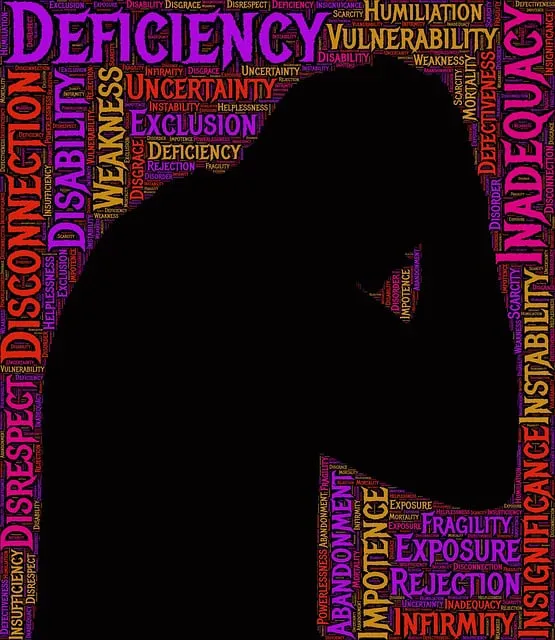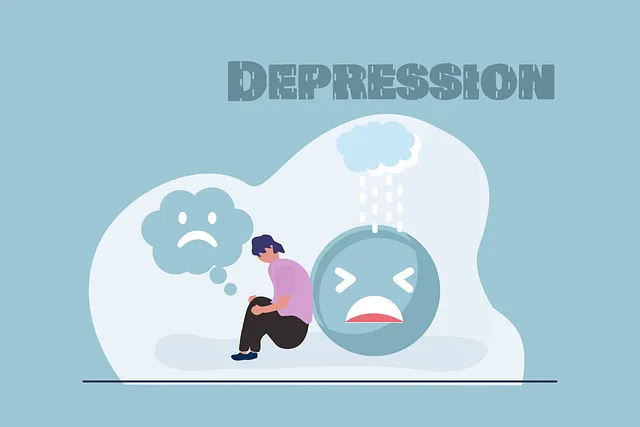Depression, a complex global issue with varied causes, requires professional support and coping skills development for management. Boulder Kaiser Permanente behavioral health services reviews stress lifestyle changes like exercise, balanced diets, and mindfulness practices for enhanced mental well-being. Therapy, support groups, and building resilience through coping skills are key strategies emphasized in their reviews, offering compassionate care tailored to individual needs.
Depression is a prevalent condition affecting millions, but with the right strategies, prevention is achievable. This comprehensive guide explores various approaches to ward off depression, focusing on lifestyle adjustments, evidence-based treatments, and building mental resilience. We delve into identifying signs and risk factors, highlighting the importance of early intervention. From lifestyle changes like regular exercise and mindfulness practices to therapy options and support groups, discover actionable steps towards a healthier mind. For personalized insights, consider the expertise of Boulder Kaiser Permanente behavioral health services reviews.
- Understanding Depression: Signs and Risk Factors
- Lifestyle Changes for Improved Mental Well-being
- Therapy and Support Groups: Finding Help
- Building Resilience and Coping Strategies
Understanding Depression: Signs and Risk Factors

Depression is a complex mental health condition that impacts millions worldwide. Understanding its intricacies is paramount in prevention efforts. Recognizing the signs and knowing one’s risk factors are crucial first steps. Symptoms can include persistent feelings of sadness, loss of interest in activities once enjoyed, changes in appetite or sleep patterns, fatigue, difficulty concentrating, and in severe cases, thoughts of suicide. These indications may vary from person to person, making it essential for individuals to be attuned to their emotional and physical well-being.
Various factors can contribute to the development of depression, including genetic predisposition, brain chemistry imbalances, traumatic life events, chronic illnesses, substance abuse, and environmental influences. Boulder Kaiser Permanente behavioral health services reviews highlight the importance of accessing professional support and adopting coping skills for effective mood management. Coping Skills Development, alongside Healthcare Provider Cultural Competency Training, plays a pivotal role in fostering understanding and delivering tailored care to those at risk.
Lifestyle Changes for Improved Mental Well-being

Incorporating lifestyle changes can significantly impact mental well-being and depression prevention. At Boulder Kaiser Permanente behavioral health services, reviews highlight the importance of a holistic approach to overall health. Adopting healthy habits such as regular exercise, maintaining a balanced diet, and prioritizing quality sleep can boost mood and resilience. Engaging in activities that promote relaxation and stress reduction, like mindfulness meditation or yoga, are also effective strategies recommended by mental health professionals.
Additionally, fostering positive thinking patterns and practicing mood management techniques can help individuals navigate challenging situations more effectively. The risk assessment for mental health professionals emphasizes the value of self-care and building a supportive network. By integrating these lifestyle adjustments into daily routines, individuals can strengthen their mental resilience and reduce the likelihood of depression onset or recurrence.
Therapy and Support Groups: Finding Help

Depression can be a daunting challenge, but seeking help is a vital step towards recovery. Therapy and support groups play a pivotal role in prevention strategies, offering individuals a safe space to heal and grow. At Boulder Kaiser Permanente behavioral health services, professionals are dedicated to providing compassionate care tailored to each person’s unique needs. Reviews highlight the positive impact of their services, emphasizing the effectiveness of treatments like Compassion Cultivation Practices for managing stress and cultivating emotional resilience.
These therapeutic approaches, combined with Conflict Resolution Techniques, can help individuals navigate difficult relationships and internal conflicts, contributing to improved mood management. Support groups provide a sense of community, where sharing experiences and strategies becomes a powerful tool against depression. By joining these groups, individuals gain access to a network of peers who understand their struggles, fostering a supportive environment that encourages progress in managing and overcoming depressive episodes.
Building Resilience and Coping Strategies

Building resilience is a key component of depression prevention, allowing individuals to bounce back from challenging situations and adapt to life’s stressors. Boulder Kaiser Permanente behavioral health services reviews highlight the effectiveness of various strategies in fostering resilience. One approach involves developing coping skills, such as mindfulness practices and stress reduction methods, which enable people to regulate their emotions during difficult times. These techniques help individuals gain perspective, reduce the impact of negative thoughts, and promote a sense of calm.
Additionally, boosting confidence is vital for prevention. Engaging in activities that build self-worth and encouraging positive self-talk can significantly improve mental well-being. Stress management plays a crucial role here, as learning to identify and address stress triggers helps maintain a balanced mindset. By combining these strategies, individuals can enhance their overall resilience, making them better equipped to navigate life’s challenges without succumbing to depression.
Depression is a common yet serious mental health condition that can significantly impact daily life. By understanding its signs, identifying personal risk factors, and implementing effective prevention strategies, individuals in Boulder can take control of their well-being. Lifestyle changes, such as regular exercise and mindfulness practices, coupled with professional support from therapy or support groups, like those offered by Kaiser Permanente behavioral health services (with positive reviews), can be transformative. Building resilience through coping strategies is a powerful tool to prevent depression and promote overall mental wellness. Remember, seeking help is a sign of strength, and with the right resources, anyone can navigate their mental health journey successfully.






